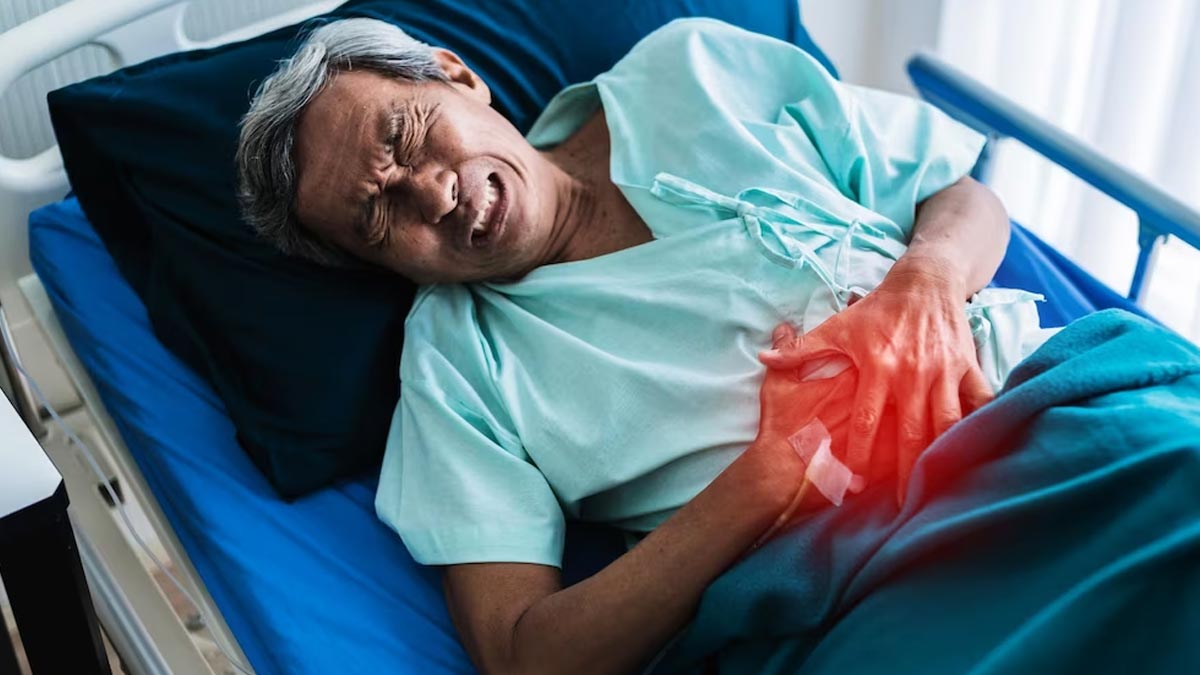
Do you wake up feeling heaviness in your abdomen? Do simple tasks like bending over or taking a deep breath become a struggle? This may be due to the Polycystic Liver Disease (PLD), a rare genetic disorder characterised by the formation of multiple cysts in the liver. While most cases of PLD are manageable with medical interventions, a liver transplant becomes necessary to deal with the complications.
Table of Content:-
In this article, Dr Surakshit TK, Consultant, Gastroenterology and Hepatobiliary Sciences, Fortis Escorts, Okhla Road, New Delhi, explained when a liver transplant is required for polycystic liver disease patients.
What Is Polycystic Liver Disease

Polycystic Liver Disease (PLD) is generally an inherited condition with cysts developing from the bile ducts within the liver. The cysts grow progressively over time, varying in size and number. While some individuals with PLD may remain asymptomatic, others can experience a range of symptoms, including abdominal pain, bloating, nausea, early satiety, and even difficulty breathing due to the compression of nearby organs.
Also Read: How To Recognize Early Signs Of Liver Diseases? Know From Expert
When Is Liver Transplant Required
While most cases of PLD are benign and do not require immediate intervention, in some instances, the disease can progress to a point where a liver transplant becomes necessary. Liver transplantation is considered the most effective treatment option for individuals with severe and debilitating PLD.
Dr Surakshit said, “Liver cysts sometimes can enlarge massively and can cause complications, leading to weight loss, early satiety, and malnutrition." It can harm the liver, leading to portal hypertension and liver failure, added the doctor.
According to Dr Surakshit, portal hypertension (increased pressure within the portal veins, the main vessel which supplies blood and nutrients to the liver) can lead to:
- Varices (enlarged veins in the food pipe which can cause massive bleeding)
- Ascites (fluid accumulation within the abdomen) and encephalopathy (altered mental status)
"However, most PLD patients have preserved liver function when compared to patients with cirrhosis of the liver (the leading cause of liver transplant)," said Dr Surakshit.
Treatment Options

Dr Surakshit said that liver transplantation is currently the curative treatment option for patients with PLD. It is done mainly in patients with severe symptoms that seriously affect the quality of life of patients, those with severe malnutrition, recurrent ascites, massive liver enlargement and untreated complications, such as portal hypertension.
He further said that patients with autosomal dominant polycystic liver and kidney disease may qualify for simultaneous liver-kidney transplantation and have better overall survival rates.
Also Read: Excessive Daytime Drowsiness Can Be A Sign Of Fatty Liver Disease: Other Symptoms To Watch Out For
What Happens During Liver Transplant
Liver transplantation involves removing the infected liver and replacing it with a healthy liver from a donor. This procedure offers the best chance of restoring liver function and alleviating the symptoms associated with PLD. However, it is important to note that liver transplantation is a major surgery and is typically considered a last resort when all other treatment options have been exhausted.
Bottomline
Living with a chronic and progressive disease like PLD can be mentally challenging, and if the patient's quality of life is severely impacted, a liver transplant may be recommended to offer them a chance at a better future.
Disclaimer
This article contains information provided by the expert, however, we recommend you consult with your healthcare expert for treatment according to your body type and medical history.
Also watch this video
How we keep this article up to date:
We work with experts and keep a close eye on the latest in health and wellness. Whenever there is a new research or helpful information, we update our articles with accurate and useful advice.
Current Version